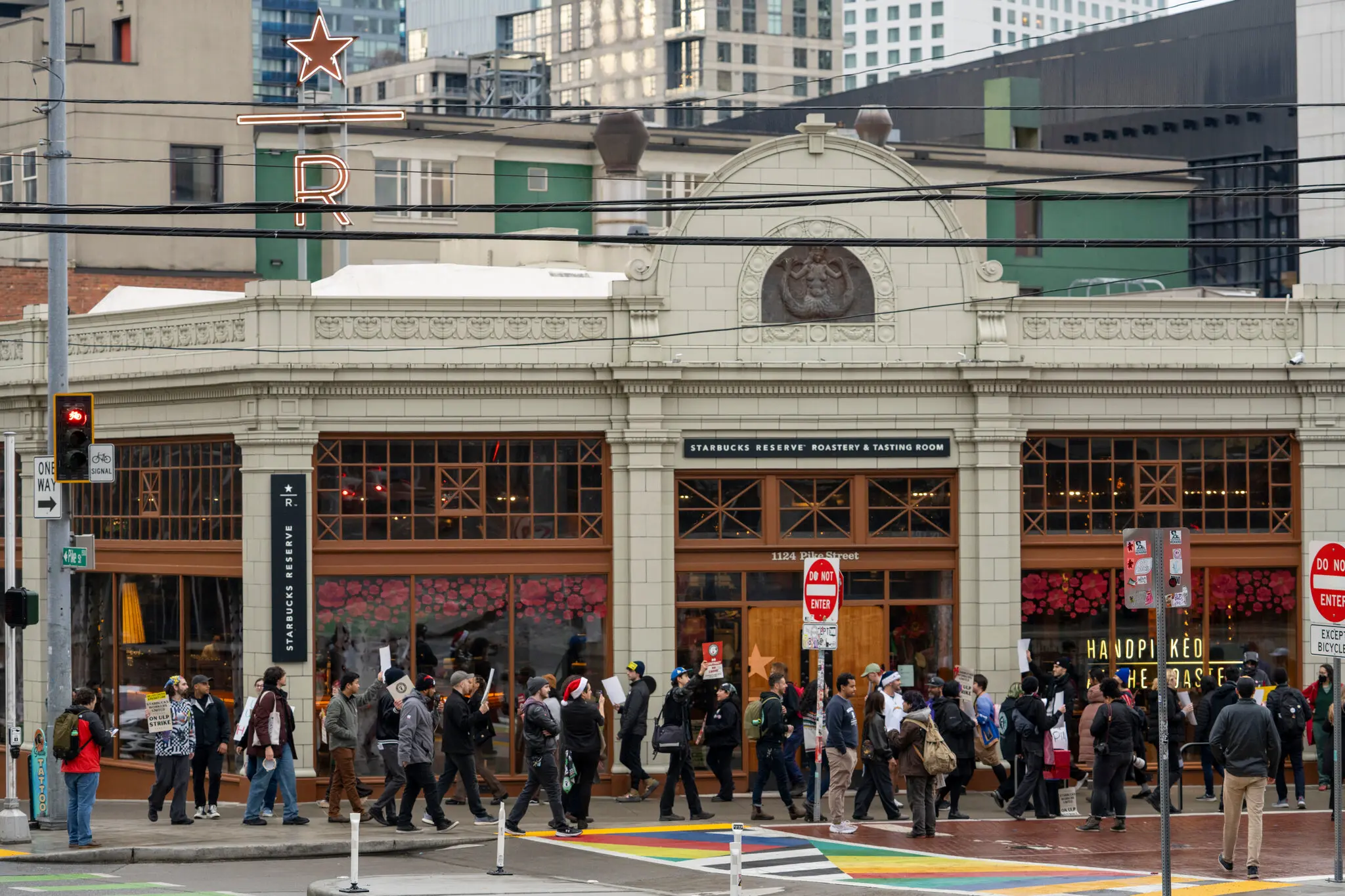Employees in Los Angeles, Chicago, and Seattle are staging walkouts following unsuccessful negotiations between the company and the workers’ union regarding pay raises.
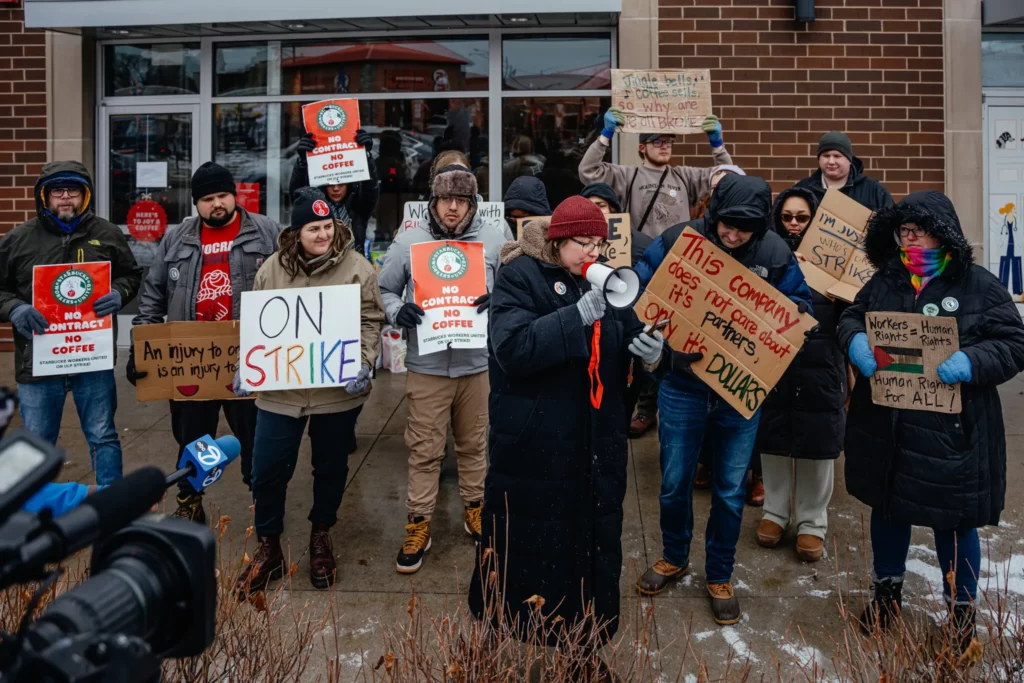
A union representing Starbucks workers announced that baristas in Los Angeles, Chicago, and Seattle walked off the job on Friday morning. They warned that the strikes could extend to hundreds of stores by Tuesday, Christmas Eve, unless the company made a more competitive wage offer during contract negotiations.
The union, which represents baristas at over 500 company-owned locations in the United States—approximately 5 percent of all U.S. stores—called for the strike after a bargaining session with Starbucks this week failed to secure improved wage terms.
Union and company officials reported that the strike impacted around 10 to 15 stores across the three metropolitan areas.
“Starbucks proposed an economic package with no new wage increases for union baristas currently and guaranteed only a 1.5 percent raise in future years,” the union, Workers United, stated.
The guarantee ensures that unionized Starbucks workers would receive a minimum wage increase of 1.5 percent, even if the company implements smaller raises nationwide in future years. However, if the company provides larger increases—such as the recent 2 percent raise announced this year—unionized employees would benefit from the higher amount.
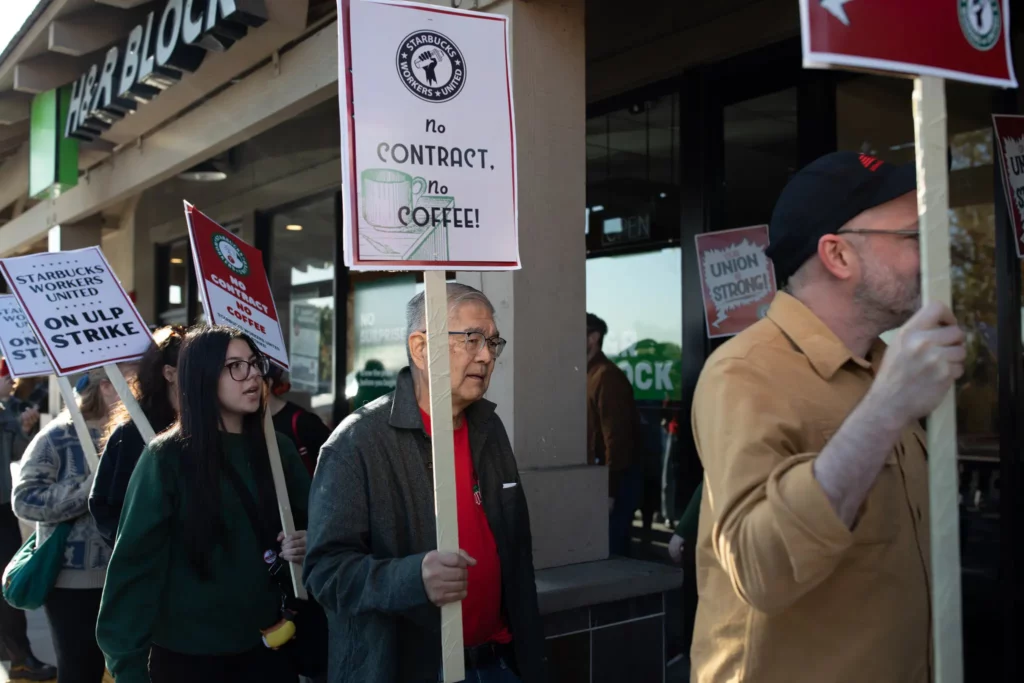
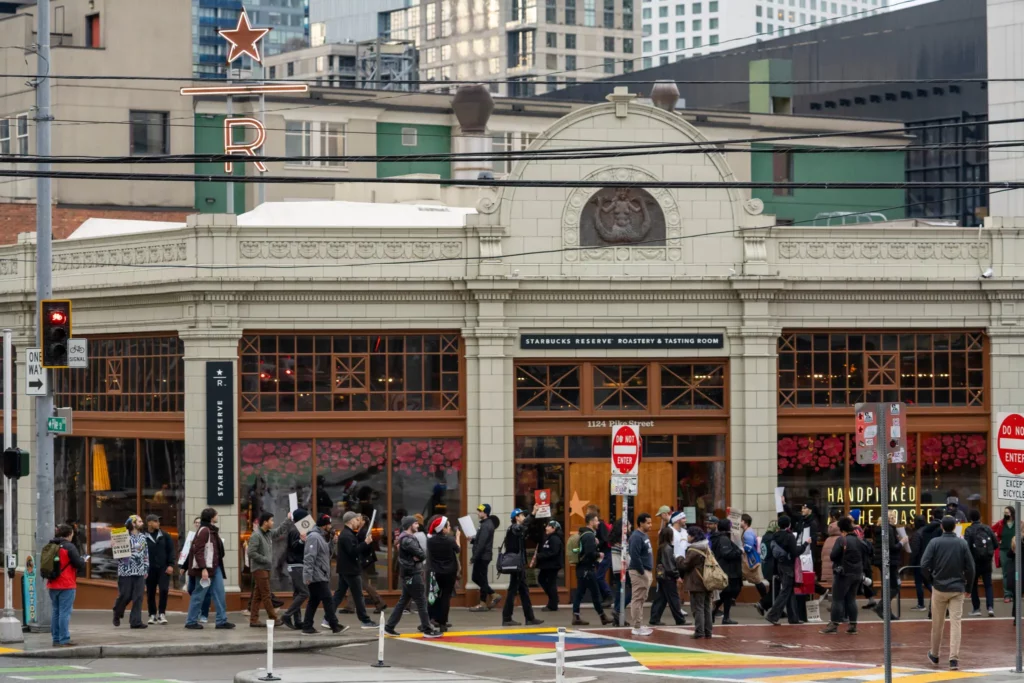
Andrew Trull, a Starbucks spokesperson, stated that union delegates “prematurely ended” this week’s negotiations. “It is disappointing they didn’t return to the table given the progress we’ve made to date,” he added.
According to the union’s website, they are advocating for a base wage of at least $20 per hour for all baristas. Mr. Trull noted that the company’s current minimum wage in the United States stands at $15.25, with the average hourly wage in stores exceeding $18.
Since April, the two sides have been negotiating a national contract framework in monthly sessions. They have reached over two dozen tentative agreements on issues such as health and safety, attendance policies, and ensuring that workers can only be terminated for just cause.
Union workers will also benefit from the expanded paid parental leave that Starbucks recently announced for all employees—a move union members believe was influenced by their demands during negotiations.
While Starbucks employees have staged shorter strikes, typically lasting one or two days, since unionization efforts began in the fall of 2021, this latest action could involve walkouts at dozens or even hundreds of stores for extended periods. The union stated that the current strike would conclude within five days.
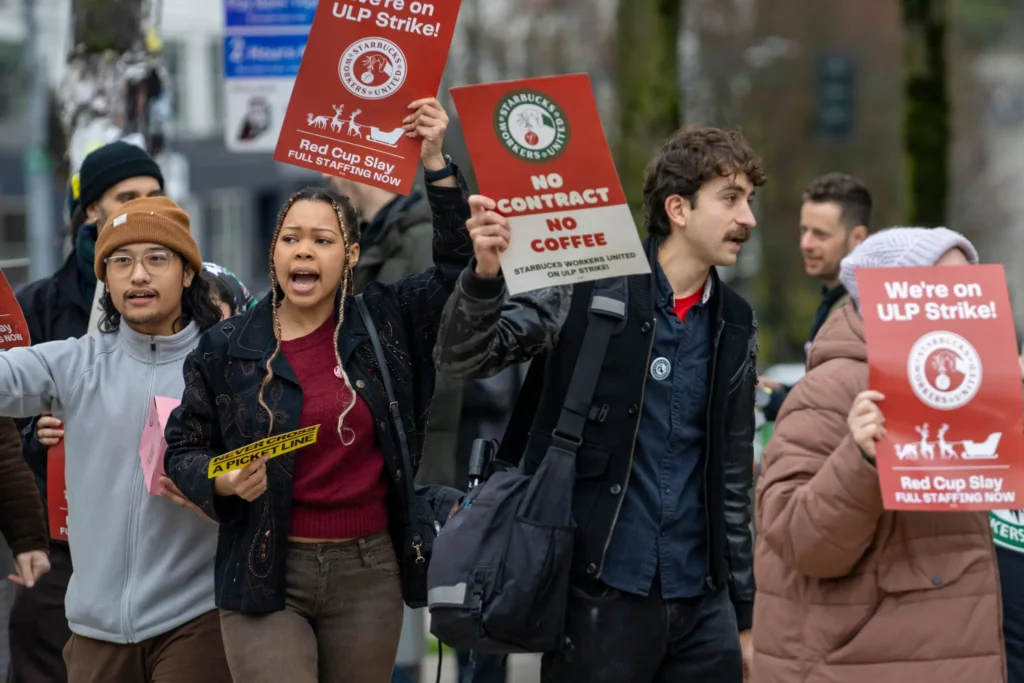
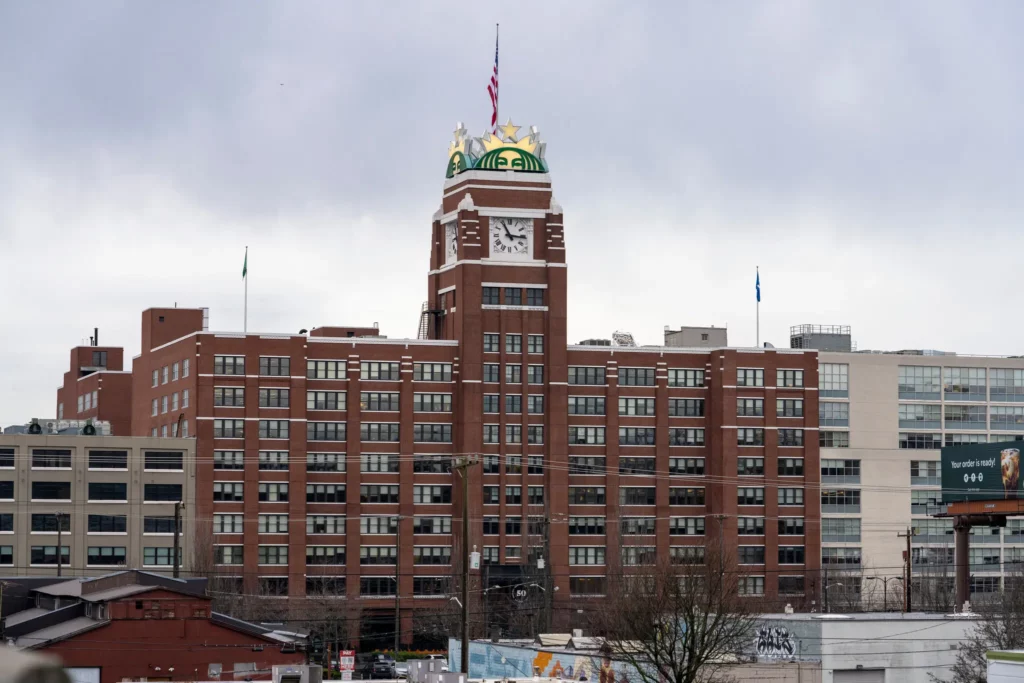
Around 10 workers gathered Friday morning outside a closed Starbucks in the Edgewater neighborhood on Chicago’s North Side. They held signs with messages like, “Please, Mr. Scrooge, give us a living wage,” and “Jingle bells, coffee sells, so why are we all broke?” By midday, the picket line had grown to more than two dozen participants, though some appeared to be supporters rather than employees.
A second Starbucks location on Chicago’s North Side and another in Evanston, a suburb just north of the city, were also closed due to the strike.
Connor Brennan, the Evanston store’s representative in contract negotiations, explained that the company’s wage and benefits proposal was “not even close to where it needs to be,” making the decision to strike “pretty much unanimous.”
Mr. Brennan, who arrived at the store at 5:30 a.m., acknowledged that maintaining a five-day picket would be challenging for his store, which currently has only nine unionized employees. However, he expressed confidence in their resolve. “It’s small, but people are willing to stay out a long time,” he said.
Starbucks had largely resisted unionization efforts for more than two years, until February, when it proposed a peace deal. The agreement aimed to create a process for workers to unionize without company opposition and a framework for negotiating contracts at hundreds of stores. Both sides also agreed to attempt to resolve litigation stemming from the unionization battle.
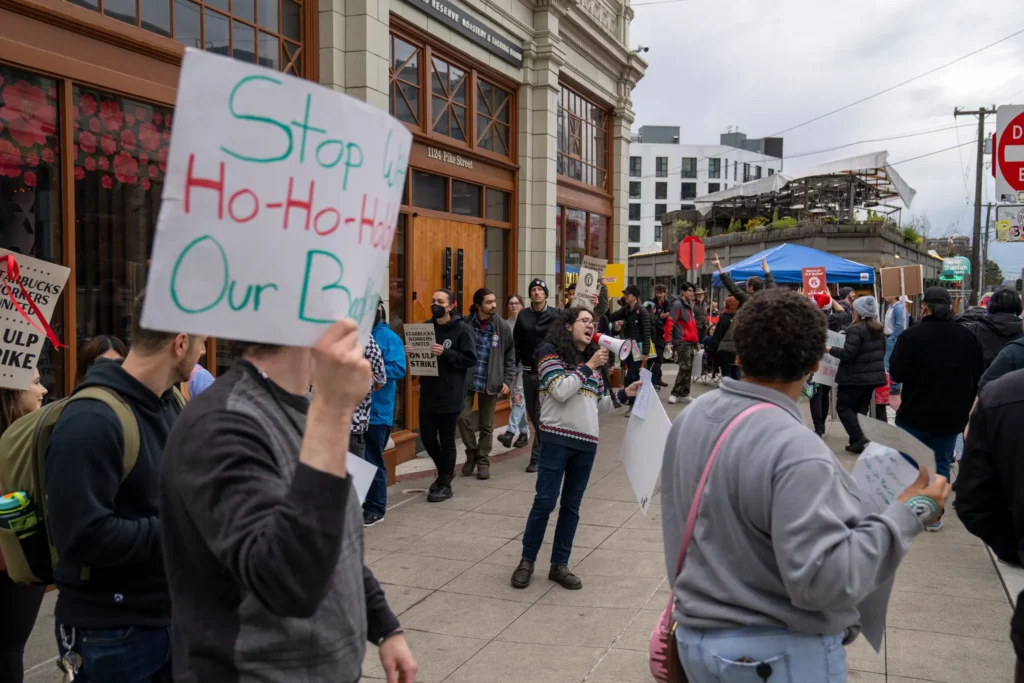
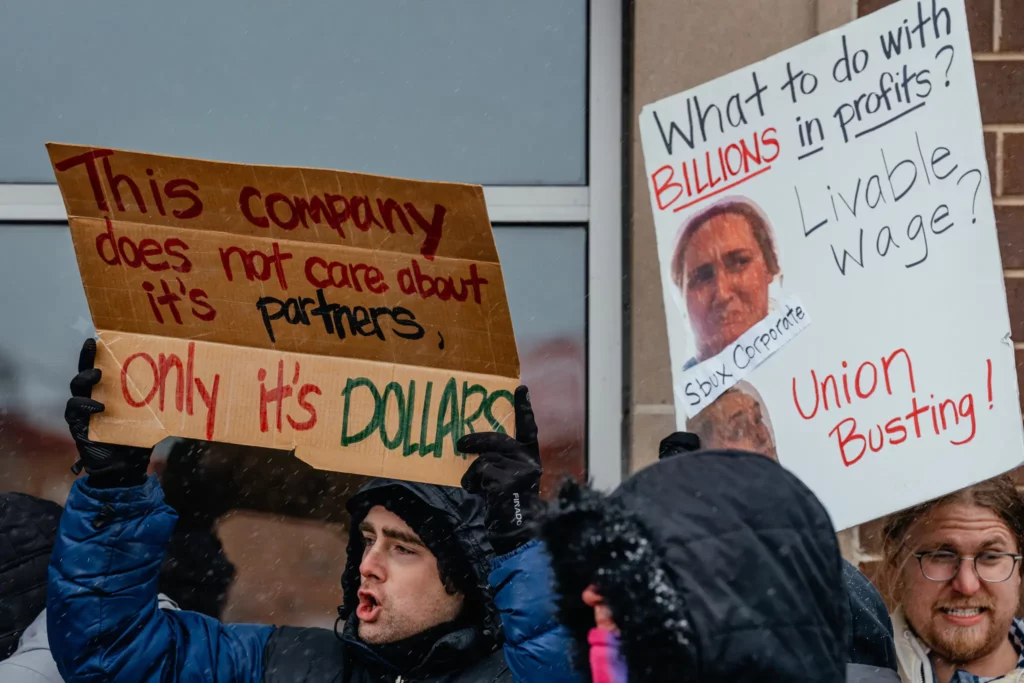
The decision to engage with the union was initiated by the company’s former CEO, Laxman Narasimhan, who faced mounting pressure from a union-backed campaign to elect three new board members, alongside boycotts and protests linked to the conflict between Israel and the Palestinians.
In a January earnings call, Mr. Narasimhan acknowledged that the protests were having a “negative impact” on Starbucks financially, although he claimed they were based on “misperceptions” about the company being hostile toward Palestinians and their supporters.
In August, Starbucks removed Mr. Narasimhan and appointed Brian Niccol, the former CEO of Chipotle, as his successor. In a letter to the union in September, Mr. Niccol stated he was “committed to making sure we engage constructively and in good faith.” However, union members involved in the negotiations have noted a slowdown in progress during the fall.
“Our CEO, Brian, doesn’t know what it’s like to lead the company while it’s in conflict with us,” said Silvia Baldwin, a Starbucks barista and bargaining delegate, during a call open to supporters and the media on Thursday night.
“It became clear very quickly that we would need to remind him—or teach him—what that looks like,” she added.
